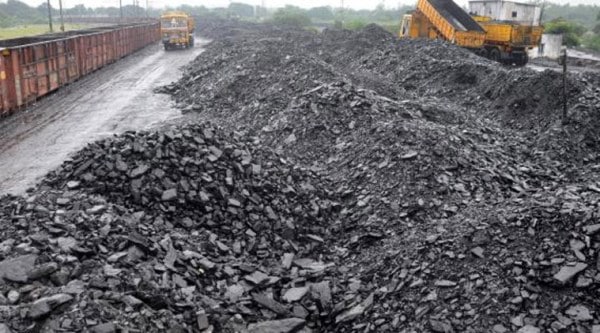
The ban was issued following a complaint by the All Dimasa Students’ Union of the adjoining Dima Hasao district of Assam, which contended that rat-hole mining in Meghalaya had polluted the Kopili river.
By Samudra Gupta Kashyap
Guwahati, Sep 23 : Four months after the National Green Tribunal (NGT) had ordered a ban on ‘rat-hole’ coal mining in Meghalaya, an organization called Movement for Indigenous Peoples’ Rights and Livelihood-Meghalaya (MIPRL) has called for an indefinite economic strike from Tuesday demanding withdrawal of that order.
The NGT had on April 17 issued orders to the state government to immediately stop rat-hole and other illegal coal mining, as also transportation of coal extracted through such methods. The ban was issued following a complaint by the All Dimasa Students’ Union of the adjoining Dima Hasao district of Assam, which contended that rat-hole mining in Meghalaya had polluted the Kopili river and turned its water poisonous.
While this ban has been opposed by various organizations including political parties on the ground that it had affected livelihood of thousands of people out of job, the MIPRL also complained against lack of response from the Meghalaya government to this major economic issue.
MIPRL spokesman Erwin K Syiem Sutnga said in Shillong that while said that the group had submitted a list of ten issues to the Meghalaya chief minister with a 10-day deadline, there was no response from him. “The state government even failed to make any proper presentation during the NGT’s hearing on September 16 despite demand by so many organizations to it to pray for relaxation of the guidelines,” he said.
The MIPRL has also demanded implementation of Para 12 A Sub Para (b) of the Sixth Schedule to the Constitution of India to protect the Khasi, Jaintia and Garo Peoples’ inalienable and absolute rights over tribal land. Its other demands included modification of all central laws applied to the state of Meghalaya done without recourse to the mandatory provisions of Para 12 A Sub Para (b) and (d).
“The government of Meghalaya continues to play with the lives and survival of thousands of people who have bee rendered jobless. We had no option left but to call an economic strike,” Sutnga said.
The MIPRL has asked all transporters of goods in and outside Meghalaya, all petroleum product tankers, limestone exporters and traders, all passenger transporters, carriers, transporters of timber, cement, clinker and coal, among others, to support the economic strike call. The strike will however not affect private and small commercial vehicles within Meghalaya, Sutnga said. It would also not affect schools, colleges, offices, markets, he added.
Meanwhile, an expert committee constituted by the National Green Tribunal (NGT) has permitted transportation of coal already extracted before issue of the ban order, but under strict 21-point environmental guidelines in six districts of Meghalaya. The MIPRL however is not agreeable to it.
Accordingly, a maximum of 9 metric tones of coal will be allowed to be transported by each 2-axle truck. The transporter will have to ensure that the truck is loaded to permissible load of 9 MT or less, the committee had said on September 1. Traffic will be regulated by the state police and a speed limit of 40 kmph should be enforced for these trucks, it said.
To prevent over assessment of extracted coal, the committee has also maintained that all coal owners should maintain registers of declared quantity, assessed quantity, date wise sale, date wise loading and date wise dispatch of coal which will be subjected to the verification of the district administration.







0 comments:
Post a Comment